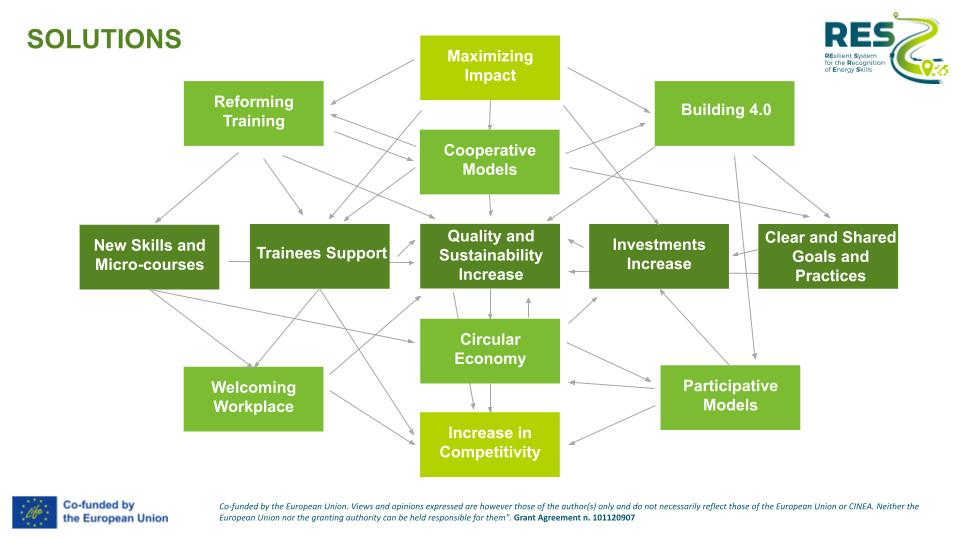The RES2 workshops
To ensure the active involvement of all stakeholders, an integral part of the project consists of a workshop cycle which are taking place throughout the national territory.
The workshops focus onidentification of challenges of the Italian construction sector and on proposed solutionswith the aim of fostering cooperation, reforming education and promoting circular economy models.
The workshops are designed to train a progressive development path of new solutions and innovations, each based on the results produced by previous workshops and including as many perspectives as possible, to build a broad and shared understanding of the complex realities of the Italian sector.
The RES2 experts started from a general analysis of the existing literature to develop a starting framework, a series of requestspotential problems and possible ways to solutions/proposals. This starter kit is presented at the start of each workshop and here integrated with the know-how of the participantsorganized into dynamic working groups.
The problems affecting the construction sector
Already after the first workshops, the main issues that affect the sector:
- there dominant policy of cost minimizationwhich emphasizes cost savings at the expense of quality and actual impact, contributing to the growing digital and green skills gap;
- There is currently an emerging trend to move away from this general policy towards “best technical solution” criteriabut this is not sufficient if not accompanied by effective means to verify the competence of the workforce and also address the other problems mentioned here;
- have highlighted themselves shortcomings in the quality of the products and in the cooperation between the players in the sector, with serious repercussions on the attractiveness of the supply chain and its ability to attract new qualified manpower.

Among the solutions is change: here's what it entails
Despite the complexity of the challenges, several possible solutions emerged during the workshops. The heart of the proposal is a change in approach from cost minimization at the maximizing impact.
According to what emerged, such a change could result.
- Adoption of new cooperative models – Italian laws and policies already promote territorial cooperation between public and private sectors to develop participatory and iterative processes, but for these initiatives to have a significant impact, they must be considered as areas of long-term priority investment. In this way, end users and other key actors could be actively involved in all phases of the construction process, improving quality control, accountability and investment opportunities.
- Training/education reform – The gaps to be filled mainly concern the practical application of updated skills and relational maturity in the working environment.
- Definition of participatory and circular economy models – With a more qualified workforce, applied and effective cooperation policies and results-oriented investments, it would be possible to develop new local or national economic models based on principles of Participatory or Circular Economy. This would increase sustainability and democratize construction and maintenance processes, creating investment pools less susceptible to market volatility. To support these models and promote widespread competence and citizen engagement, it is proposed to invest in assistance to students and apprentices of all ages, through higher wages, lower taxes, childcare facilities, cohabitation programs and residence.
- Transition towards Construction 4.0.
The proposed changes could significantly increase the attractiveness of the workplace of the construction sector in Italy, while providing the tools, skills and investments necessary to update it in line with the green and digital transition.
RES2 don't wait that all the goals of the green and digital transition come achieved by 2030but is confident that solutions and processes to achieve them can be developed and integrated by all stakeholders within that period.

How to participate in the process of building the RES2 roadmap
For participate to one of the next ones workshops scheduled Click here.
For fill out the questionnaireswhose data will contribute to the definition of the roadmap Click here.
For more information on the initiative you can contact the project staff: [email protected]

